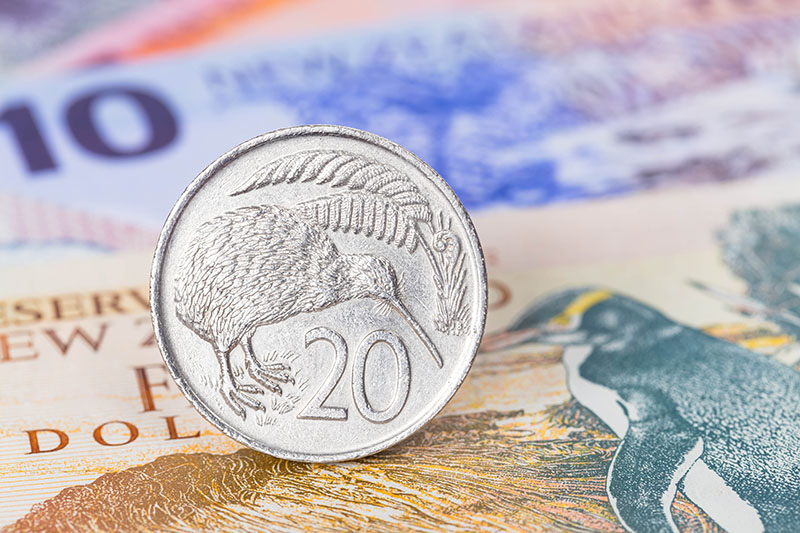Investing.com - Despite a somewhat dovish stance by the Reserve Bank of New Zealand, the Kiwi continues to show signs of resilience. However, this hasn't deterred some investors from preparing for potential downturns, particularly in light of the week's crucial inflation data release.
Contrasting viewpoints have emerged among leveraged funds and asset managers regarding New Zealand dollar positions, as revealed by Commodity Futures Trading Commission data. The former group appears to be on a winning streak with the Kiwi gaining approximately 6% since its May-end low against the US dollar. Yet, overall annual performance remains relatively stable.
The upcoming Q2 inflation report from New Zealand could potentially trigger a more profound reassessment of central bank interest rates and their influence on currency values. Notably last week — marking its first pause in nearly two years — RBNZ maintained rates at 5.50%, amidst indications that an underperforming economy is dampening price pressures.
Kristina Clifton, Senior Economist at Commonwealth Bank of Australia predicted earlier this week that "the current tightening cycle might have reached its zenith at 5.50%. If financial markets further unravel predictions for RBNZ rate increases, it may negatively impact the kiwi."
Predictions suggest a deceleration in Q2 inflation to around 5.9% YoY compared to last quarter’s figure of 6.7%. Evidence supporting lower trending inflation could likely put pressure on New Zealand's dollar if it leads to additional unwinding expectations for another possible rate hike by RBNZ this year.
RBC Capital Markets strategist Alvin Tan noted that “despite recent support from a weakening US dollar pushing towards range highs near $0.64; any decline in quarterly CPI figures should cause it to retreat from these highs as the market anticipates further rate cuts into 2024.”
During Monday's trading session, the NZ currency fe;; 0.3% to the $0.6350 level.
Kiwibank predicts a drop down to $0.55 by year-end due to easing price pressures noting “Inflation has hit its peak while we are experiencing an economic contraction,” according to Jarrod Kerr and fellow economists' note released last week adding “A softer terms of trade (export prices), declining growth alongside compliant inflation implies reduced interest rates and narrowing interest differentials.”
